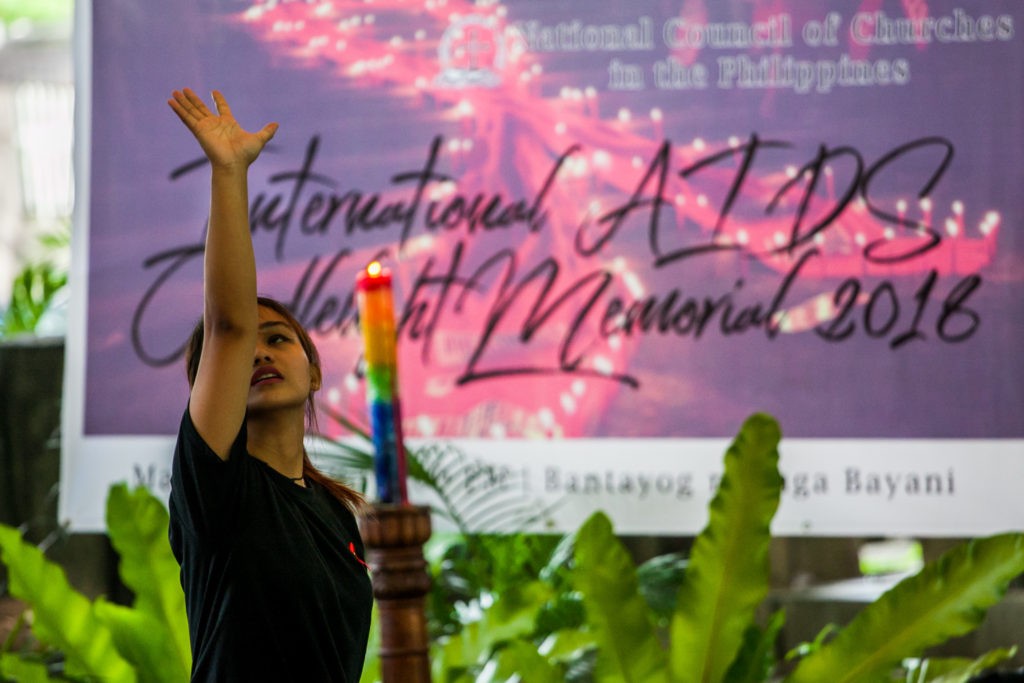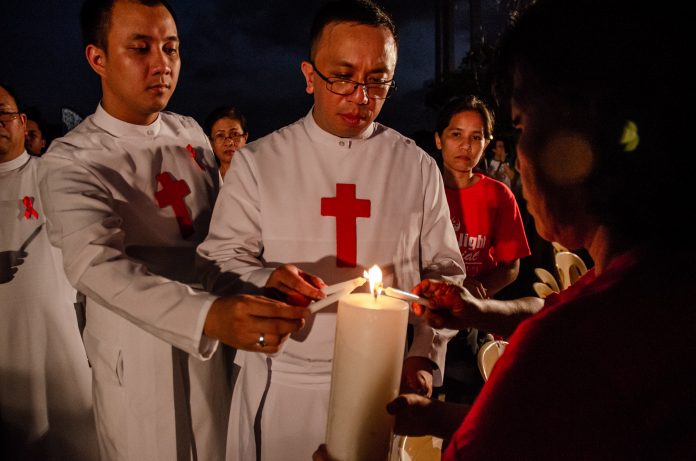An official of the Episcopal Commission on Health Care of the Philippine Catholic bishops’ conference appealed to Filipinos to unite and work for the elimination of HIV and AIDS.
“[Let us] unite ourselves in the fight against this dreaded disease,” said Father Dan Cancino in a message during the observance of World AIDS Day on December 1.
He called on everyone “to continue to show support” for those who have been afflicted by the disease and to remember those who died because of the effect of HIV and AIDS.
“Make each and everyone of us a haven of love, a haven of peace, a haven of care so that all those who were abandoned, those who are discriminated on account of this disease may feel that they belong to our hearts and to our family,” said Father Cancino.
Health Secretary Francisco T. Duque III said an average of 21 new cases of infection of the human immunodeficiency virus, or HIV, are reported in the Philippines daily.
The health official said the country is facing a “public health threat” that needs the cooperation and collaboration of everyone.
Data from the Department of Health show that there are now of 81,169 HIV and AIDS cases in the country since January 1984, when the first case was detected.
Last month, there were a total of 735 confirmed HIV-positive individuals, 96 percent, or 704 of whom, were male.
Bigger challenges during pandemic
A new study released this week revealed that lack of social protection during the coronavirus pandemic has brought bigger challenges to people living with HIV in the Philippines.
The study released by the group TLF Sexuality, Health, and Rights Educators Collective claimed that the country’s “poor healthcare system” and “lack of social protection mechanisms” contributed to the worsening access to care, treatment, and support.
Anastacio Marasigan, the group’s executive director, said the pandemic has underscored the need to establish and strengthen “social protection measures for key affected population.”
“Social protection policies and programs for HIV should be crisis-sensitive,” he said.
In an online forum, Ruthy Libatique, the group’s lead researcher, noted that people living with HIV faced “mobility challenges to accessing healthcare and treatment” during the lockdowns.
She said they were even forced to disclose their status in police checkpoints due to lack of clear protocols and the absence of guidance from the Health department.
The study also revealed that some women living with HIV were subjected to “isolation and abuse.”
Due to financial restrictions because of the pandemic, these women were unable to escape an abusive relationship, said the report.
HIV testing was suspended in many parts of the country when the government imposed a strict community quarantine lockdown in March.
Many hospitals, which were turned into COVID-19 facilities, became inaccessible to people with HIV and there was “lack of direct, effective, and accessible communication channels” with healthcare facilities.

Growing number of cases
The latest government data showed that there were 1,875 confirmed HIV-positive individuals reported from July to September this year.
More than 4,100 Filipinos have already died because of the disease since 1984.
As of September, a total of 45,981 people with HIV were receiving Anti-Retroviral Treatment.
Sexual contact among males who have sex with males was the “predominant mode of transmission” among diagnosed Filipino males.
“We need to define mechanisms for the protection of [people living with HIV] not only during the pandemic but for all events that pose service-disruption like disasters,” said Marasigan.
He said the study has recommended a “human-rights-based implementation” of COVID-19 protocols, rules, and regulations to address the issues of people living with HIV.
The group urged the Philippine government “to decentralize HIV services and empower clinics, communities and service providers.”
The study also shows the need to “fully centralize and modernize” the database system with a “standard data privacy protocol.”
“Allow flexibility of government rules, regulations, and requirements to make it resilient to the demands of fast response in times of crises like pandemics, calamities, and disasters,” it added.
Globally, more than 38 million people living with HIV are battling the disease.
Mark Saludes contributed to this report









